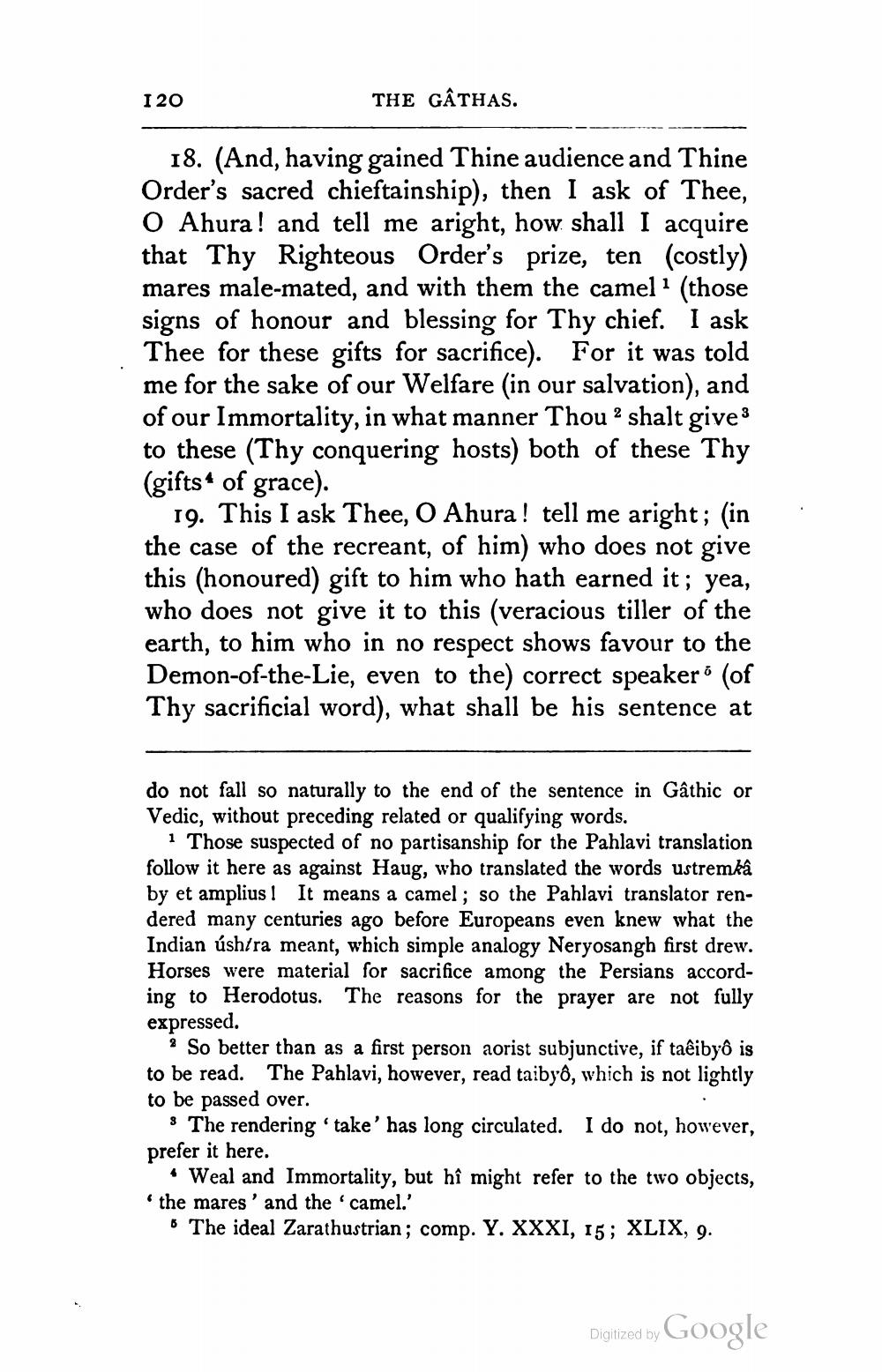________________
120
THE GÂTHAS.
18. (And, having gained Thine audience and Thine Order's sacred chieftainship), then I ask of Thee, 0 Ahura! and tell me aright, how shall I acquire that Thy Righteous Order's prize, ten (costly) mares male-mated, and with them the camel 1 (those signs of honour and blessing for Thy chief. I ask Thee for these gifts for sacrifice). For it was told me for the sake of our Welfare (in our salvation), and of our Immortality, in what manner Thou shalt give 3 to these (Thy conquering hosts) both of these Thy (gifts of grace).
19. This I ask Thee, O Ahura! tell me aright; (in the case of the recreant, of him) who does not give this (honoured) gift to him who hath earned it; yea, who does not give it to this (veracious tiller of the earth, to him who in no respect shows favour to the Demon-of-the-Lie, even to the correct speaker (of Thy sacrificial word), what shall be his sentence at
do not fall so naturally to the end of the sentence in Gâthic or Vedic, without preceding related or qualifying words.
1 Those suspected of no partisanship for the Pahlavi translation follow it here as against Haug, who translated the words ustremkâ by et amplius! It means a camel; so the Pahlavi translator rendered many centuries ago before Europeans even knew what the Indian úsh/ra meant, which simple analogy Neryosangh first drew. Horses were material for sacrifice among the Persians according to Herodotus. The reasons for the prayer are not fully expressed.
So better than as a first person aorist subjunctive, if taêibyô is to be read. The Pahlavi, however, read taibyô, which is not lightly to be passed over.
The rendering take' has long circulated. I do not, however, prefer it here.
• Weal and Immortality, but hî might refer to the two objects, the mares' and the camel.' 5 The ideal Zarathustrian; comp. Y. XXXI, 15; XLIX, 9.
Digitized by
Digitized by Google




